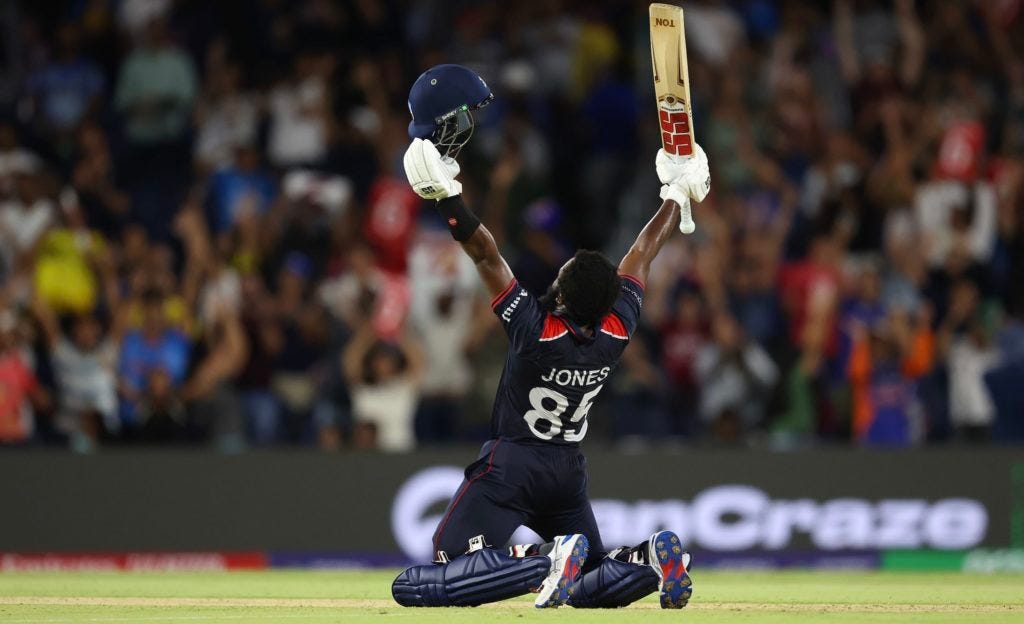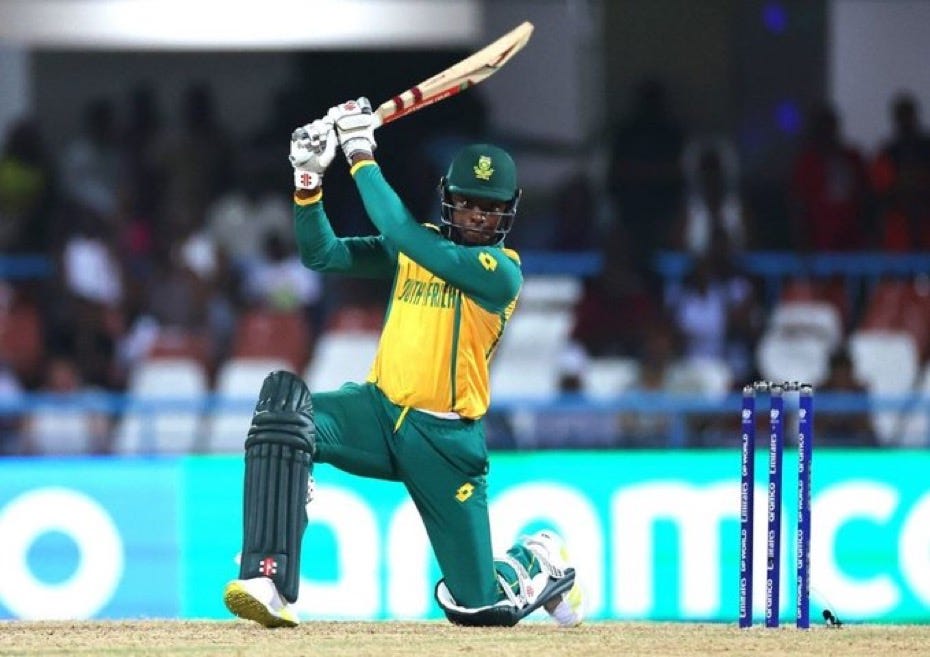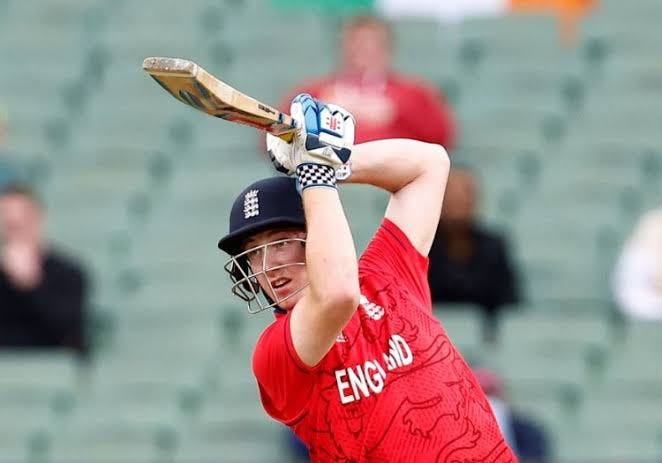Whoever measures these things, and ‘win-predictor’ looks like it’s operated by a seven-year-old on a sugar rush, it feels safe to assume that no team in the history of cricket World Cups has cobbled together such a long sequence of unconvincing victories as South Africa has managed at the current T20 World Cup.
Generations of national cricketers have spoken for many years about wishing to emulate the Springboks who won their quarter final, semi final and final last year by single point margins, often coming from behind with little time remaining to do so. This Proteas team are offering a close approximation.
Ever since they tiptoed their way to a tentative, six-wicket victory against Sri Lanka having bowled them out for 77 in New York 22 days ago, they have looked uneasy, lacking in confidence and unsure of themselves. Yet here they are, down to the final four teams, two wins away from the title.
Seven consecutive victories, three of which looked dead in the water with just three overs remaining. Bangladesh needed 20 runs to win from three overs with six wickets on hand and Nepal were cruising with just 30 needed from 42 balls and eight wickets remaining. They still only needed eight from the last over with four wickets in hand.
The ghosts from two previous humiliations against the Netherlands appeared in terrifying form when they crashed to 12-4 needing 104 to win, an undeniable, full-on, top order choke.
One or two clutch innings in New York and a pair of Quinton de Kock half centuries aside, the batting has been awful – in both shot selection and execution – and once or twice the bowlers have matched their incompetence, like when the enthusiastic club cricketers from the USA reached 176-6 and gave the Proteas a real scare.
And yet. And yet. It IS seven wins in a row. That happens so seldom in leagues or tournaments between similarly matched teams that it is statistical anomaly in the 1% category. To do so while making so many mistakes and without ever rising above, say, 60% of the team’s collective ability is extraordinary and difficult to explain.
One theory is that all the good fortune that previous teams have missed out on in the last 25 years of these events has been stacked up and is now washing over them in a wave of luck that has helped sweep the opposition away. Believe that and stick with the scented candles and whale music for inner peace and karma.
Another is that the South Africa’s tournament has been vivid proof, as you will have heard many coaches and players say over the years, that so many of these matches are won and lost in ‘moments’ rather than bowling spells or batting innings. Do Kock scores 74 from 40 balls, dominates the headlines and we consume that as evidence of the match-winning contribution.
But Kagiso Rabada, for instance, did more to win two games (against Bangladesh and Nepal) with a single over and his cover-driven four off the final ball of the penultimate over against the West Indies yesterday was as much of a defining moment as anything else in a pulsating match as pregnant with tension as it was with errors.
Any captain will tell you they are only as good as their players but Aiden Markram’s decisions, many of them outright, desperate gambles, have paid rich dividends. When England needed 14 from the final over with Harry Brook unbeaten of 53 and on strike, Markram packed the leg-side (Brook’s strength) leaving vast, inviting gaps on the off-side.
As much as it made cricket sense, there is also a play on the batters’ pride and ego. It says: ‘You can’t hit the ball there, you’re not good enough.’ Anrich Nortje still needed to bowl the ball in the right place, but Brook accepted the invitation (or took the bait) and splaffed his drive just over mid off from where Markram held a brilliant, running, over-the-shoulder catch. It was ‘the moment.’
Markram was suitably and appropriately chastened after yesterday’s victory saying that the achievement of reaching the semi-finals was “huge for the team” but that he would not be “brain-washed” by it. “We would have liked to be a lot more convincing in getting the job done with the bat,” he said.
There have been many imperfections with the logistics and format of this tournament, not the least of which is that England qualified for the semi-finals before South Africa despite two defeats and a washout while the Proteas would have been eliminated after just one defeat if they had lost to the West Indies.
A couple of final thoughts: South Africa will now have to win nine straight matches to lift the title, something they have never done before. But if you put three of their seven wins down as defeats, which they should have been, the odds don’t look so daunting. Maybe it’s the year for imperfection. Maybe it’s the format. Maybe it’s their… time. Heard that before?







Love the way you write it!
That semifinal in Sydney was 1992, Manners, so it’s 32 years of missing good fortune, not 25!